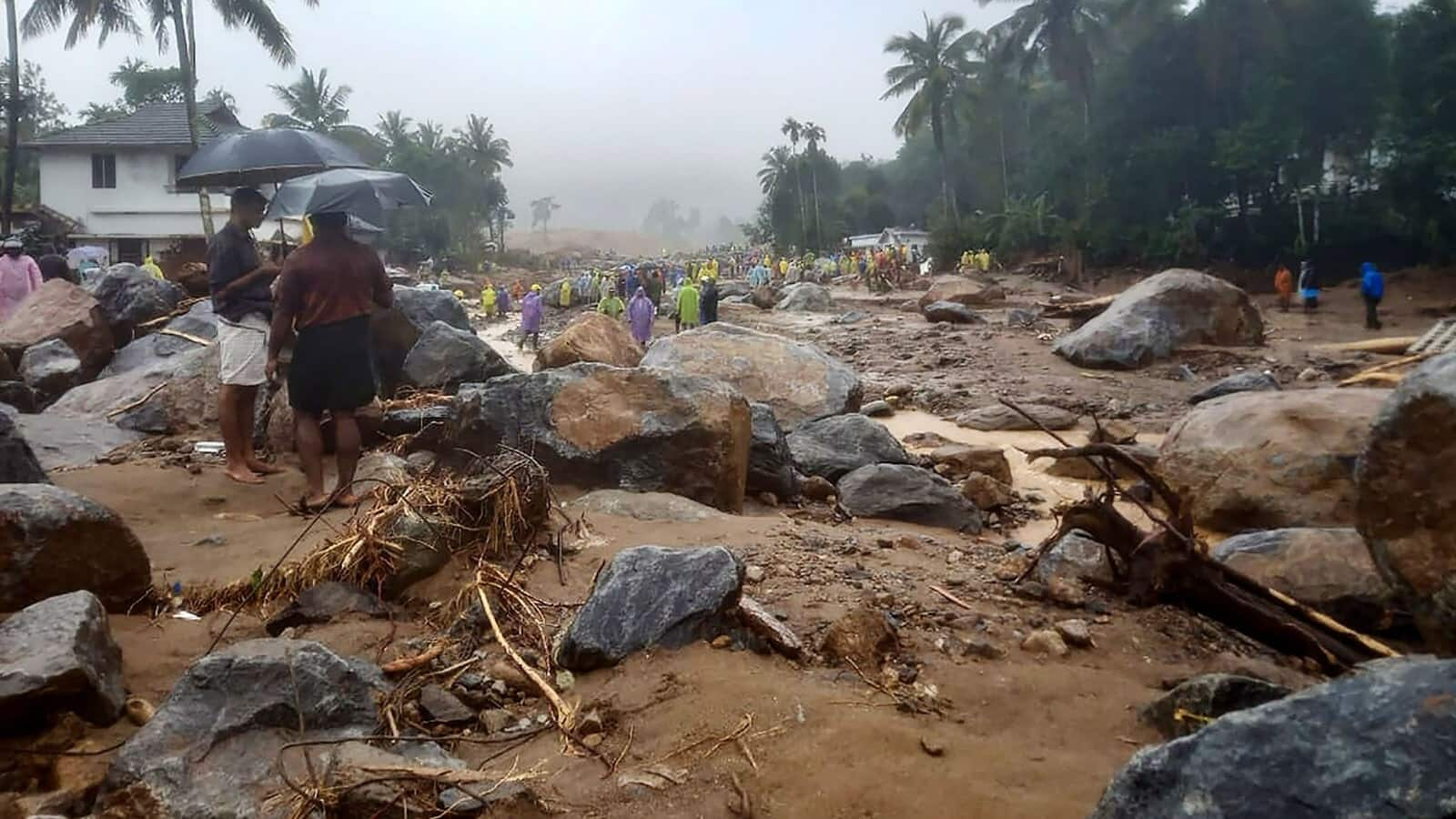
Wayanad landslides linked to warming of Arabian Sea, says scientist
What's the story
The warming of the Arabian Sea is allowing deep cloud systems to form, resulting in unusually heavy rainfall in Kerala in a shorter amount of time and increasing the risk of landslides, a senior climate scientist said. Extremely heavy rain triggered a series of landslides in Kerala's Wayanad district early Tuesday, killing at least 156 people and injuring almost 200.
Climate change
Warming Arabian Sea contributes to unpredictable rainfall
"Our research found that the southeast Arabian Sea is becoming warmer, causing the atmosphere above this region, including Kerala, to become thermodynamically unstable," S Abhilash, director of the Advanced Centre for Atmospheric Radar Research at Cochin University of Science and Technology (CUSAT) explained. He stated that this trend of rainfall has been observed since the 2019 Kerala floods. "Earlier, this kind of rainfall was more common in the northern Konkan belt, north of Mangalore," he said.
Environmental impact
Deforestation, plantation expansion increase landslide risk
Other causes for the landslides include the loss of green cover and excessive mining, among others. According to the Indian Space Research Organisation's (ISRO) National Remote Sensing Centre, Wayanad ranks 13th among the 30 most landslide-prone districts in India. A 2021 study found that 59% of landslides in Kerala occurred in plantation areas. Another research conducted in 2022 revealed that Wayanad lost 62% of its forest cover between 1950 and 2018, while plantation cover increased by around 1,800%.
Mining
Unimplemented recommendations for ecologically sensitive zones
The "Western Ghats Ecology Expert Panel," established by the government under ecologist Madhav Gadgil, recommended declaring Wayanad hill ranges as ecologically sensitive since 2011. The panel suggested dividing the region into zones based on their ecological sensitivity and protecting vulnerable sections. They proposed a ban on mining, quarrying, new thermal power plants, hydropower projects, and large-scale wind energy projects in ecologically sensitive zone-1, but these recommendations have not been implemented due to resistance from state governments, industries, and local communities.
Weather changes
Erratic monsoon patterns increase landslide frequency
Roxy Mathew Koll, a climate scientist at the Indian Institute of Tropical Meteorology, noted that while it's too early to understand the specifics of the Kerala landslides, monsoon patterns have become erratic. More rainfall is occurring in a short period, leading to frequent instances of landslides and floods along the Western Ghats, from Kerala to Maharashtra, he added.